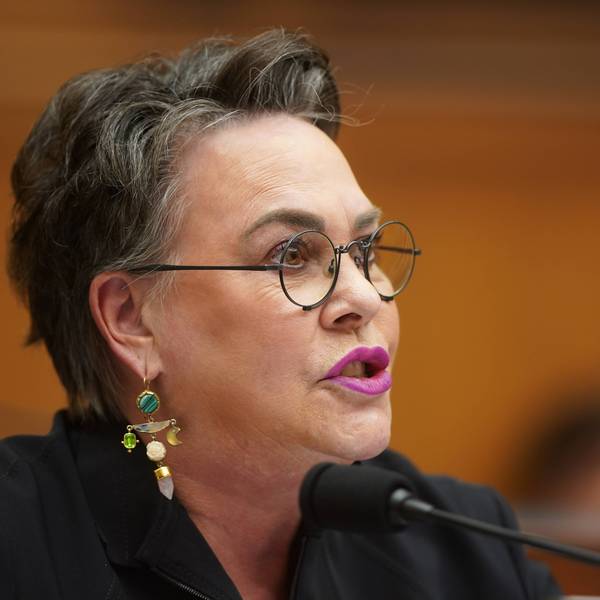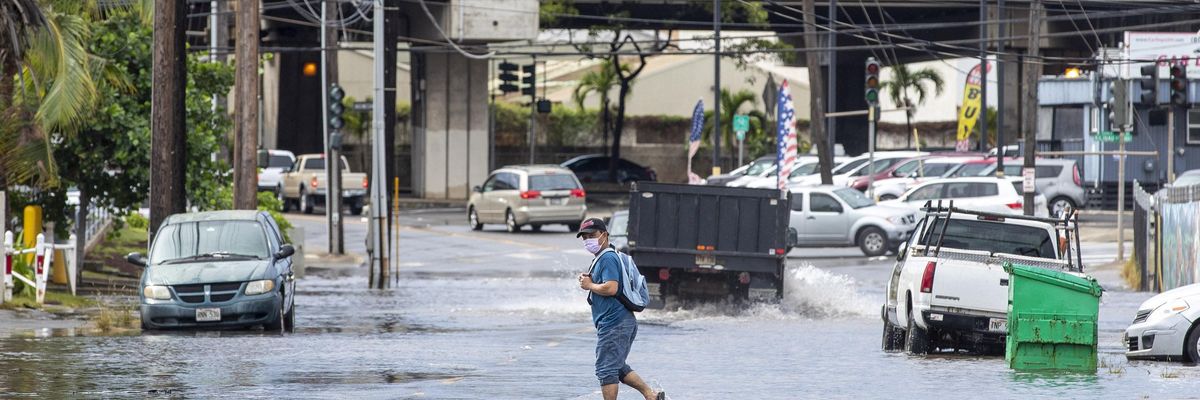Campaigners and frontline communities celebrated Monday after the U.S. Supreme Court declined to hear five appeals from major fossil fuel companies hoping to shift climate liability cases from state to federal court, where polluters are more likely to prevail.
"Big Oil companies have been desperate to avoid trials in state courts, where they will be forced to defend their climate lies in front of juries, and today the Supreme Court declined to bail them out," said Center for Climate Integrity president Richard Wiles.
"The high court's decision is a major victory for communities across the country that are fighting to hold Big Oil accountable and make them pay for the climate damages they knowingly caused," he continued. "Now it's time for these polluters to face the evidence of their deception in court."
The new denials come after the nation's highest court handed fossil fuel giants a narrow win two years ago. They involve lawsuits brought against several companies—including BP, Chevron, ExxonMobil, Shell, Suncor, and Sunoco—in recent years by the state of
Rhode Island as well as municipalities across California, Colorado, Hawaii, and Maryland.
"The decision sends a powerful message to fossil fuel companies: Evading responsibility will not be tolerated."
"This was the right decision, and it is time to prepare for trial," declared Sara Gross, chief of the Baltimore City Department of Law's Affirmative Litigation Division in Maryland.
"Since we filed this case nearly five years ago," she noted, "the climate crisis has worsened, the costs to Baltimore taxpayers are skyrocketing, and the defendants have pocketed trillions of dollars in profits while trying to dodge accountability for their deception."
Boulder County Commissioner Ashley Stolzmann said that her community is "thrilled," adding that "our lawsuit against Exxon and Suncor should be determined in Colorado state court—where the actions of these companies are negatively impacting our residents."
"Communities like ours are exposed to destructive climate change impacts caused by the actions of fossil fuel companies while they reap record profits," she stressed. "These companies need to pay their fair share to deal with the climate chaos they've created and take responsibility for the climate impacts. Local governments cannot shoulder the price tag of climate change alone."
The high court's position was also praised by climate campaigners and experts across the country, including Delta Merner at the Union of Concerned Scientists' Science Hub for Climate Litigation, who applauded the "significant victory for climate justice and climate lawsuits" while calling out "the recklessness and greed of the fossil fuel industry."
"ExxonMobil, Suncor, Chevron, Shell, and other fossil fuel companies have known for decades that heat-trapping emissions from their operations and the use of their products drive climate change and its impacts, but they have continued to deceive the public and obstruct meaningful action," she said. "The decision sends a powerful message to fossil fuel companies: Evading responsibility will not be tolerated."
Earlier this month, documents
exposed that Shell knew about the impact of fossil fuels even earlier than previously thought—a revelation that came just a few months after a peer-reviewed study showed that ExxonMobil accurately predicted global heating decades ago.
"As we become more adept at identifying the specific contributions of individual companies to the climate crisis through attribution science," said Merner, "we are increasingly able to trace the lines of responsibility from the boardrooms of fossil fuel companies to the shattered homes and lives of those harmed by climate change."
"While no amount of money can compensate for the damage climate change has wrought, a victory in this case could provide some measure of justice and demonstrate the power of litigation as a tool for climate action," she added of the Boulder effort—which U.S. President Joe Biden's Justice Department supported last month with an amicus brief.
Justice Brett Kavanaugh said he would have granted a review for the Colorado case. While Justice Samuel Alito, who
owns stock in some Big Oil companies, did not weigh in on the decisions, Justice Amy Coney Barrett, whose father spent nearly three decades as an attorney for Shell, participated.
"Honolulu taxpayers are ready to hold these defendants accountable for their deception and the enormous costs that their conduct is imposing on our communities," said Matthew Gonser, who leads the Hawaiian city and county's Office of Climate Change, Sustainability, and Resiliency. He noted the decision aligns with district and appellate court rulings.
According to the environmental law firm Sher Edling, fossil fuel companies' federal removal claims also have been rejected by the appeals courts for the 1st, 3rd, 4th, 8th, and 9th circuits, demonstrating agreement among 33 district and appellate judges nominated by five former presidents.
The Supreme Court next month is still set to decide on a petition involving Delaware and Hoboken, New Jersey. Sher Edling highlighted a few lines from the related 3rd Circuit opinion: "Our federal system trusts state courts to hear most cases—even big, important ones that raise federal defenses. Plaintiffs choose which claims to file, in which court, and under which law. Defendants may prefer federal court, but they may not remove their cases to federal court unless federal laws let them. Here, they do not."
Mat Marshall, a spokesperson for Democratic Delaware Attorney General Kathy Jennings, welcomed the developments on Monday and said that "the question presented to the Supreme Court by defendants in our case is identical, so we look forward to the same outcome in a few weeks when that petition is considered."
This post has been updated to clarify that Justice Samuel Alito did not participate in any of the decisions.




